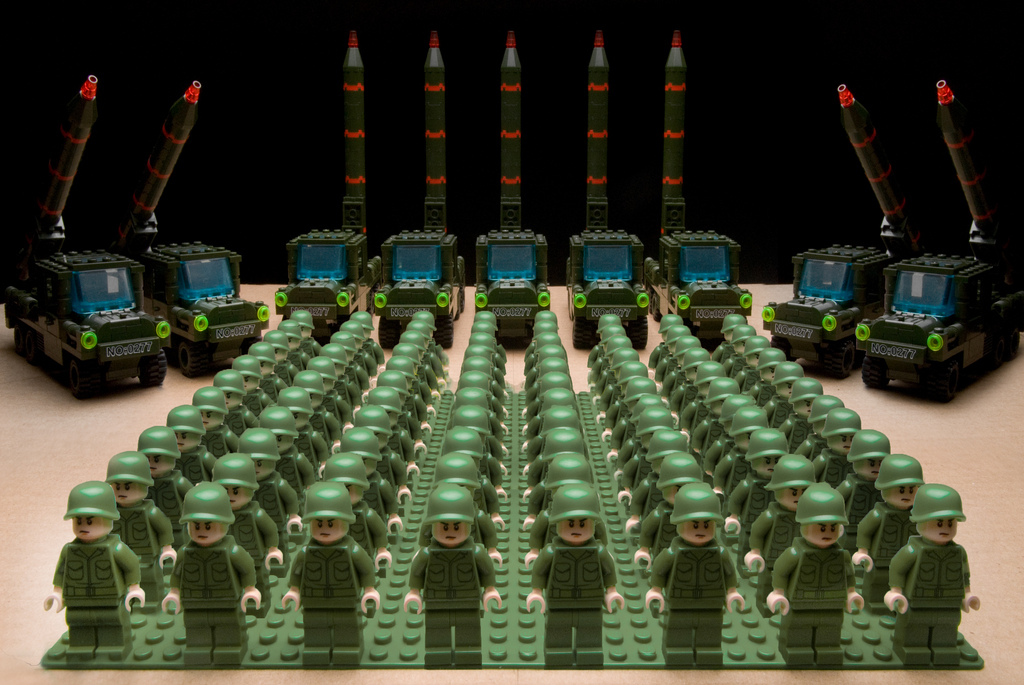Reader response: some more thoughts on nonproliferation
Posted By Mahmud Ali on December 12, 2012 @ 11:00
 [1]
[1]Many thanks for Tanya Ogilvie-White’s insightful and somewhat wistful commentary [2] on nuclear proliferation in an increasingly complex security arrangement in Asia. She points out the dangers confronting the international security system generally, and nuclear-insecurity in particular, as transitional volatility at the systemic level begins to erode confidence in the post-Cold War equilibrium, and she does so with the right combination of urgency and anxiety. I commend her analysis, but I wish to make a couple of observations on the difficulties facing future leaders of the nuclear nonproliferation regime, emanating from the regime’s own history.
Firstly, let me recognise the broad success of nonproliferation efforts. Other than the initial P-5 nuclear states, only a handful of countries, ie Israel, India, Pakistan and North Korea, are known to possess nuclear weapons, and only Iran is believed to be pursuing the capability to produce some, Tehran’s persistent protestations to the contrary notwithstanding. Many other states, despite suffering from grave insecurity of various origins and possessing the technical and financial wherewithal to address these by fashioning a nuclear deterrent, have elected not to, or have been persuaded to desist. This success of the NPT regime is commendable. Those who believe in the risks inherent in proliferation should support and strengthen the regime in their collective interest.
However, this success cannot detract from the negative elements built into the regime, frailties which weaken its moral and substantive foundations. Dr Ogilvie-White mentions India’s insistence on the iniquitous nature of the regime as the basis of Delhi’s refusal to adhere to the NPT. She might have mentioned that, in the 1980s, when confronted with severe international sanctions because of its then covert nuclear weapons programme, Pakistan also made the same point. The regime does, in fact, divide the world into blocs of nuclear haves and have-nots, and legitimises the indefinite perpetuation of these blocs. The bargain struck by the drafters and other signatories has not been fully honoured and, when it has been, inconsistency has been as apparent as consistency.
It doesn’t require a political scientist to appreciate that inconsistent applications of stated principles erode their legitimacy, if not their validity. The conduct of the P-5 powers in implementing their obligations under the treaty since it came into effect suggests, if nothing else, that they fully recognise the symbolic power as well as actual lethality endowed by the possession of nuclear weapons and their delivery systems. It seems that they are determined to retain their monopoly of these attributes in a generally competitive security milieu. That record can only attenuate the moral strength of their generally consensual argument against horizontal proliferation [3].
The treatment P-5 powers have meted out to non-signatory and signatory proliferators since Israel developed and deployed its nuclear weapons in the 1960s and India tested its first nuclear device in 1974 has varied widely. India was initially confronted with fairly severe sanctions. Pakistan faced equally severe sanctions in the late 1970s but then was treated as an ally in the anti-Soviet jihad in Afghanistan. Once that campaign ended and the Soviet threat dissipated post Cold War, Pakistan faced the full force of the Pressler [4]– and other Amendments, while India gradually became a strategic partner of global significance. Israel never faced any sanctions for its nuclear weaponisation but no Arab state can count on ever being treated with similar favour. North Korea, no longer a treaty signatory, nonetheless faces profound threats to survival—not least owing to its own semi-suicidal domestic barbarity—while South Korea only has received mild reproach for its breach of the NPT-covered research restrictions [5]. This level of inconsistency can only corrode the regime’s international legitimacy—and probably has.
Finally, again it doesn’t require political-scientific scholarship to recognise that state-actors are fundamentally driven by comparable basic instincts. If ruling elites perceive profound, even existential, threats from external (or even domestic) sources, they will do everything they can to defend their interests. The late Pakistani leader Zulfikar Ali Bhutto’s vow that Pakistanis would ‘eat grass, if necessary’ [6] to build a nuclear deterrent to further Indian encroachments following Pakistan’s dismemberment via civil war and New Delhi’s Soviet-aided third-party military intervention is a case in point. It took more than two decades of enormous privations before Pakistan could develop a deterrent. As Dr Ogilvie-White points out, Pakistan’s nuclear enterprise is part of a Sino-Indian-Pakistani insecurity triangle which Islamabad is incapable of disentangling alone. India, similarly, is responding to Chinese power, whereas Beijing has built up its own arsenal as a deterrent to perceived American, and to a lesser extent, Russian, threats. The US-Russia-China-India-Pakistan linkage is fundamental to understanding what drives secondary and tertiary powers to become proliferators.
These drivers cannot be contained by legalistic formulation and interpretation of treaties. Insecurity has to be addressed by identifying, acknowledging and mitigating its root causes. It is not immediately clear that the Westphalian model or the realist paradigm informing the current global system is amenable to addressing elemental insecurities between fundamentally competitive actors.
S. Mahmud Ali is a programme associate with the East Asia International Affairs Programme at the London School of Economics and Political Science (LSE IDEAS). Image courtesy of Flickr user Eric Constantineau – www.ericconstantineau.com [7].
Article printed from The Strategist: https://www.aspistrategist.org.au
URL to article: https://www.aspistrategist.org.au/reader-response-some-more-thoughts-on-nonproliferation/
URLs in this post:
[1] Image: http://www.aspistrategist.org.au/wp-content/uploads/2012/12/5498537857_bb400c7450_b.jpg
[2] insightful and somewhat wistful commentary: http://www.aspistrategist.org.au/position-vacant-nonproliferation-and-disarmament-leader-asia/
[3] horizontal proliferation: http://eng.globalaffairs.ru/number/n_2911
[4] Pressler: http://www.fas.org/news/pakistan/1992/920731.htm
[5] breach of the NPT-covered research restrictions: http://learn.tsinghua.edu.cn:8080/2000990313/sknuclear.htm
[6] ‘eat grass, if necessary’: http://www.armscontrol.org/print/5576
[7] Eric Constantineau – www.ericconstantineau.com: http://www.flickr.com/photos/ericconstantineau/5498537857/in/set-72157625502022549
Click here to print.